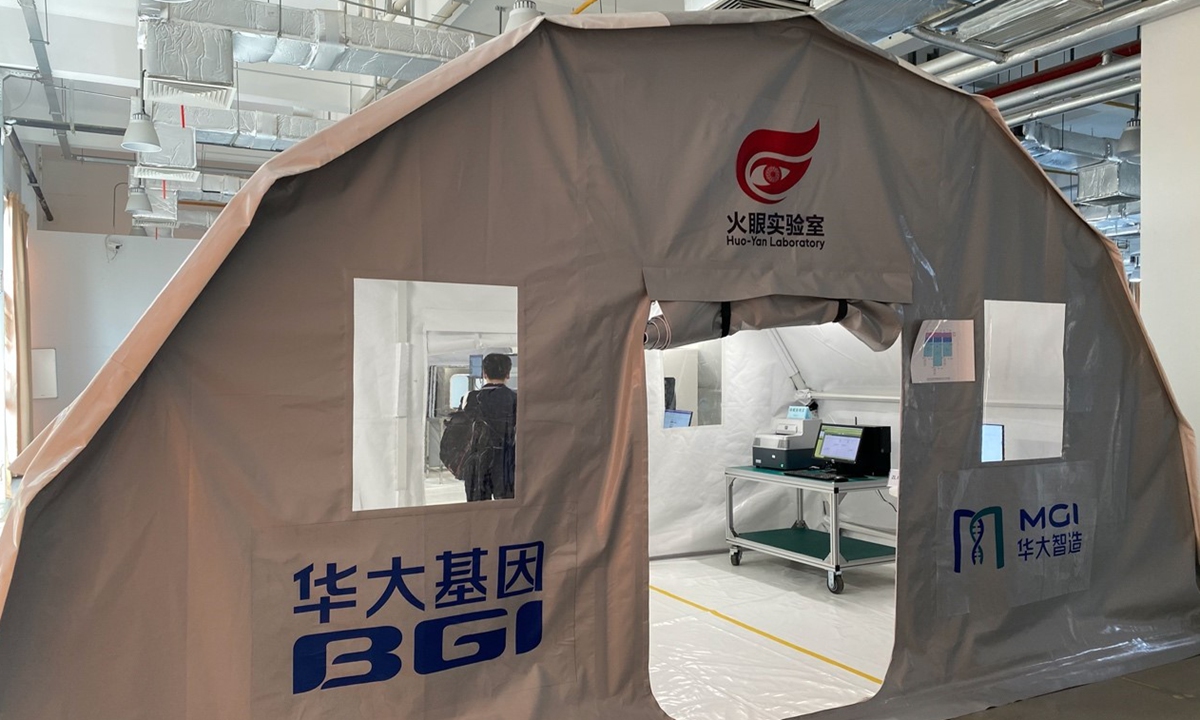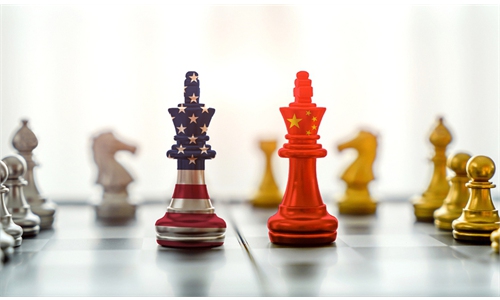
BGI's Huo-Yan Lab in Wuhan Photo: Shen Weiduo/GT
Chinese biotech company BGI Group (BGI) has rebutted false accusations contained in the US' recently proposed Biosecurity Act in an official statement sent to the Global Times on Wednesday. The company said the Act will "limit competition in the important field of human genome sequencing."
The US has extended its crackdown on Chinese companies to the new field of biotechnology, as a select committee of the US House of Representatives has drafted a bill to ban federally funded medical providers from entering into contracts with a group of Chinese biotech firms out of "national security" concerns.
According to the draft bill posted on the select committee's website, it mainly targets Chinese biotech companies including BGI Group, along with WuXi Apptec and its sister company WuXi Biologics.
BGI said in its statement that "assertions that BGI has participated in the collection, storage, or analysis of personal genetic information for the purpose of infringing on human rights are false."
BGI does not serve patients in the US, nor does it provide clinical services, thus it has no access to Americans' personal data, according to the company. BGI only serves institutional and corporate clients in the US for research purposes. Any personally identifiable information from human samples is removed by the client before the samples are sent to BGI, and these samples are sequenced in North America and Europe, the company said.
"BGI fully embraces the bill's premise of protecting Americans' personal data. Unfortunately, this legislation will succeed only in driving BGI out of the US and will not accomplish its stated goal. Rather, the bill will further strengthen the effective market monopoly held by one company that controls more than 90 percent of the market, resulting in increased healthcare costs and limited access to technologies and services," the statement said.
The company also refuted the allegations in the US act that BGI collects DNA data through PCR testing or Huo-Yan (Fire Eye) labs.
"PCR testing for COVID-19, including BGI's, analyzes only the viral RNA, not the patient's DNA, meaning it only analyzes non-human data by checking for the presence or absence of the virus," the company said.
The company also denied the US' allegation that BGI is controlled by the Chinese government or military, stressing that it is privately owned. It also said the company's work is undertaken for civilian and scientific purposes only.
US' statements alleging that BGI helps the Chinese government collect DNA data through the China National GeneBank (CNGB) are false, the company underlined. "CNGB is operated by BGI-Research, a non-profit research institute funded by BGI, under contract from the government. This is a similar model under which many US National Laboratories operate. CNGB stores research data for peer reviews, again similar to the function of gene banks in other countries, including the US. BGI's test data is stored in BGI's labs, not in CNGB," it said.
Analysts said on Monday that the systemic US actions abusing the concept of "national security" hinder normal bilateral economic and trade relations. They also called on Washington to correct its mistakes in a bid to boost normal cooperation between the Chinese and US business communities and promote faster sci-tech advances to bring benefits for all human beings.
The latest move also goes against the recent trend of increasing dialogues between China and the US in finance, military and diplomatic and other fields, according to analysts.


